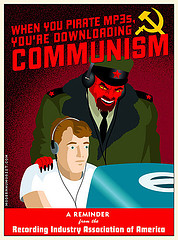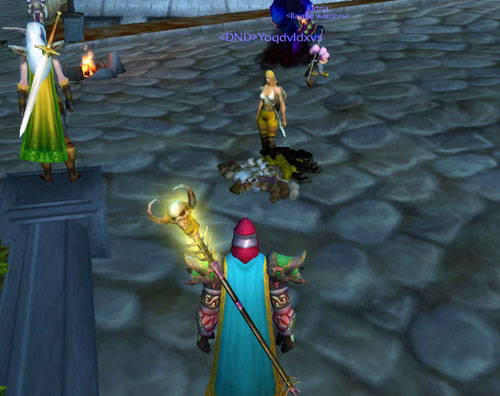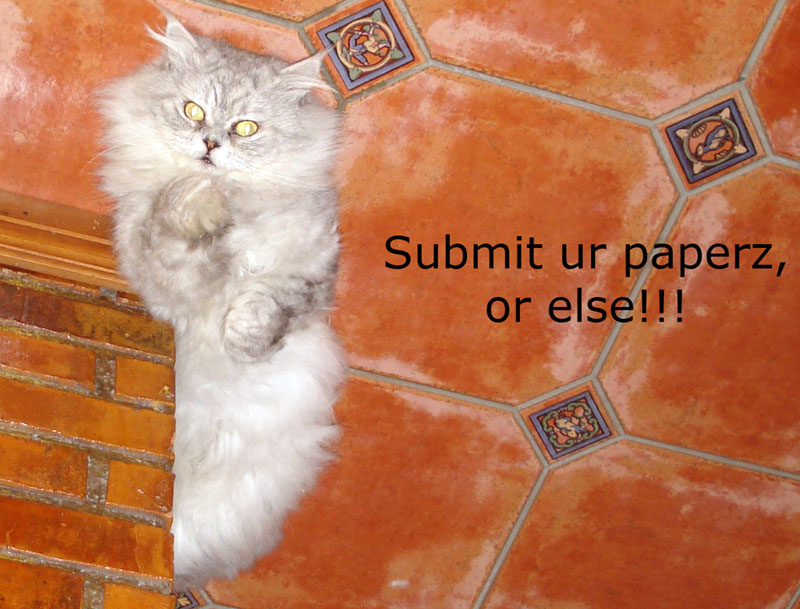Dell involed in massive pricing error
 (via Fernando Fernández and Claudio Ruiz) One of the risks for retailers engaging in electronic commerce is the dreaded pricing error. The relatively short history of the internet is paved with such mistakes, for example, when Kodak sold a £329 GBP camera for £100; Amazon sold a £192 handheld PC for £7; or Argos sold a £299 TV for £2.99. The usual solution for retailers is to allege that an error has been committed, and not to fulfil the orders awaiting legal action by the buyers.
(via Fernando Fernández and Claudio Ruiz) One of the risks for retailers engaging in electronic commerce is the dreaded pricing error. The relatively short history of the internet is paved with such mistakes, for example, when Kodak sold a £329 GBP camera for £100; Amazon sold a £192 handheld PC for £7; or Argos sold a £299 TV for £2.99. The usual solution for retailers is to allege that an error has been committed, and not to fulfil the orders awaiting legal action by the buyers.
Computer manufacturer Dell has found itself in trouble due to a massive pricing error in its Latin American website. One of Dell's main features is the possibility of configuring computers by adding, removing or upgrading components. On 27 June 2008, this feature went wrong, and started subtracting money for an upgrade instead of adding it. This resulted in a specific configuration consisting of selecting the base Dell Inspiron 1525 system and upgrading it to a Dual Core processor, which would normally cost roughly £300 GBP, but due to the upgrade being subtracted instead of added, the total cost was £77. Apparently, some people in Chile found the mistake, and this being the Web 2.0 universe, left messages in Facebook and blogs advertising the gaffe, which allowed users to get a laptop that would normally cost $298,997 CLP (Chilean Pesos), and instead cost $77,739 CLP. This resulted in an astounding 66% times increase in sales in that day for Chile, and apparently thousands attempted to get the exploit (unofficially, 15 thousand laptops!). Needless to say, Dell did not fulfil the orders, and offered the affected customers a 15% discount in future sells. In many other places, this action would have gone unnoticed, but in Chile this has been the subject of legal threats involving the consumer protection ombudsman, and talk of the largest class action suit in Chile's history.
There is a very interesting legal discussion about this topic in Claudio's always excellent blog "Quemar las Naves". Without knowing any of the particulars of Chilean consumer law, this seems to me to be a basic case of contract formation. Contract in civil jurisdictions is concluded through an invitation to treat, offer and acceptance. The first legal question here is whether Dell was under contractual obligation to fulfil the orders, or if the contract had not been perfected. Firstly, to me it is clear that the website is the invitation to treat, the customer placing the order is the offer, where is therefore the acceptance? Dell did not send any confirmation and did not charge for the laptops, so to me there was no acceptance. Even if there was a contract, most Latin American countries share similar Civil Codes as a result of the efforts of Venezuelan lawmaker Andrés Bello, who spent 20 years drafting the Chilean Civil Code, which would be the basis for most of Latin American versions. Brushing up on my Private Law, I remember that error can be the basis for the nullity of contract. In some systems, there is a distinction between error in the subject of the contract and error in the price. Either way, error could be amended, or it could result in declaring the contract void if the error was such that the contract would have been otherwise disallowed. Furthermore, ill intent (dolo) can also be a contractual vice that could result in its annulment. It is clear from reading some comments in blog entries that most buyers were aware that this was an error, and that they were purposefully exploiting an innocent mistake. There are people claiming that they purchased 20 laptops.
There are legal precedents in Common Law systems to deal with this area. In DSG Retail Ltd v Stockton on Tees Council, the High Court ruled against an advertised price promise because it dealt with two items that were not identical. In the California case of Donovan v RRL, the court found that obvious mistake voided the contract. Similarly, the Electronic Commerce Directive sets out the order confirmation email as a requirement in electronic commerce transactions. While this is not a contract formation step, many e-commerce retailers have taken such as confirmation email as their acceptance. Amazon.co.uk for example, explains that there will be an acceptance of the offer (order) thus:
"That acceptance will be complete at the time we send the Dispatch Confirmation E-mail to you. Any products on the same order which we have not confirmed in a Dispatch Confirmation E-mail to have been dispatched do not form part of that contract."This is an elegant legal solution, and I believe that most e-commerce retailers should have similar clauses.
Regardless of the legal issues, one has to look at the morality of the transactions. Claudio Ruiz has written adequately that he is distraught at what he sees as a culture that rewards cheating and exploiting errors. There was a similar case in Chile last year, which leads one to believe that this may be endemic to the culture. Consumer protection laws exist to protect consumers from legitimate abuses, not to protect obviously fraudulent exploitation of an honest mistake.
We will see how this one develops, but I hope Dell wins.
Update: I have fixed some figures based on Dell's own figures, thanks to the anonymous commenter for the heads up.

 del.icio.us
del.icio.us



















